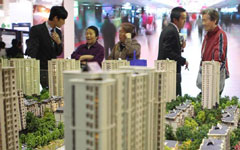The proposed integration of the three cities would ideally result in relocation of several industries from Beijing. These are typically expected to be the relatively non-core and labor-intensive industries. As the country's political and administrative capital, Beijing will look forward to retaining the core, technology intensive and cutting-edge next-generation industries. They would prosper by being in the capital and benefit from the strategic and global interface that Beijing offers.
But if the non-core industries shift to Baoding, there might be concern among local people that they will get to inherit Beijing's burden of intense urbanization. This might have some adverse effects on Baoding's long-term urban and industrial sustainability.
|
 |
 |
Beijing has enjoyed unparalleled historical importance as the national capital. What the planners might be aiming for is to develop Baoding as a city that can take over some of the functions that Beijing serves as a political capital. And one of those could be relocation of some central government offices and agencies to Baoding.
Such relocation would immediately enhance Baoding's prestige in the country and help its growth as a political and administrative hub in the shadow of Beijing. The relocation, however, is not going to be easy. Government offices used to functioning in Beijing might be reluctant to shift to Baoding given the advantages of working in Beijing, particularly their proximity to other ministries, departments and agencies. Again, like industrial relocation, the decision might be to relocate those offices and agencies that are relatively less important. Such decision has the possibility of creating friction between departments that are chosen to relocate and those that are not.
The integration will require careful planning and gradual implementation.
But even before the first move is made, property prices have increased in Baoding in anticipation of the higher political and administrative status it is expected to get. The critical issue for planners will be to ensure that growth in urban infrastructure in the integrated zone takes place in a manner that helps decongest urban areas and at the same time makes living in the zone an affordable option, particularly for those who migrate from outside.
The author is head (partnership & programme) and senior research fellow at the Institute of South Asian Studies in the National University of Singapore.
